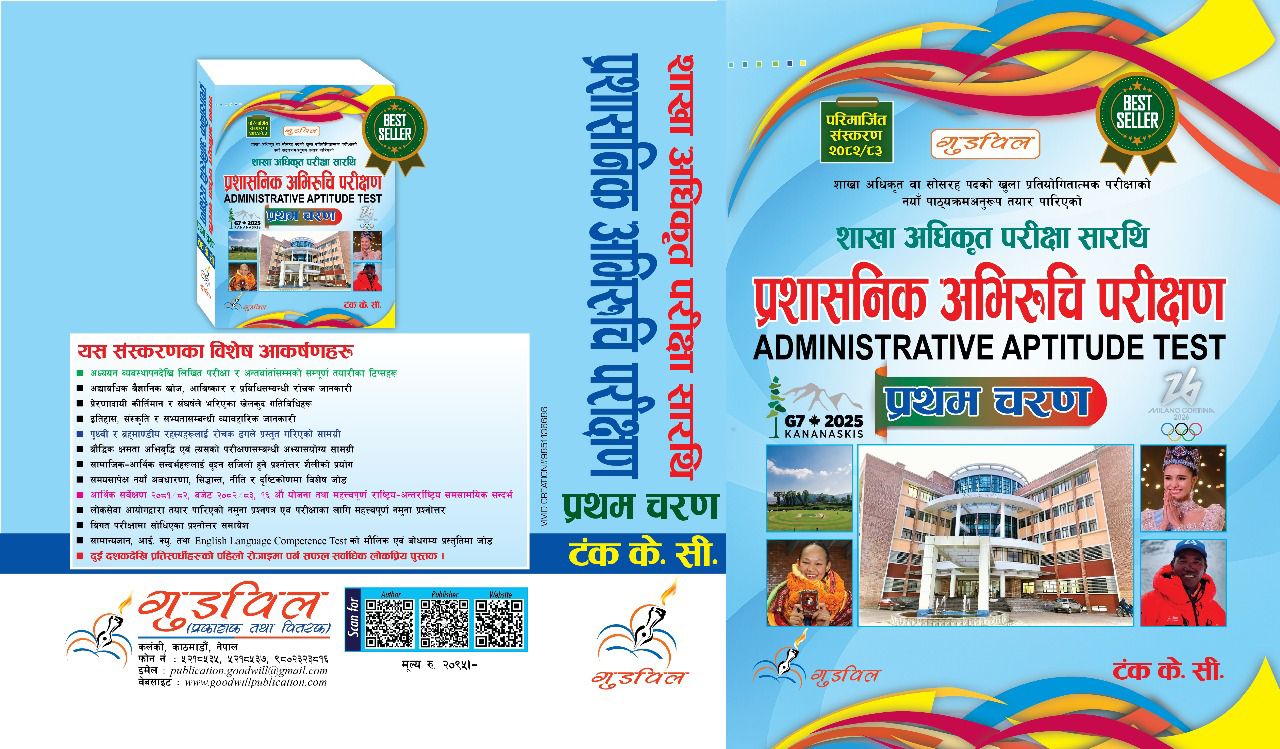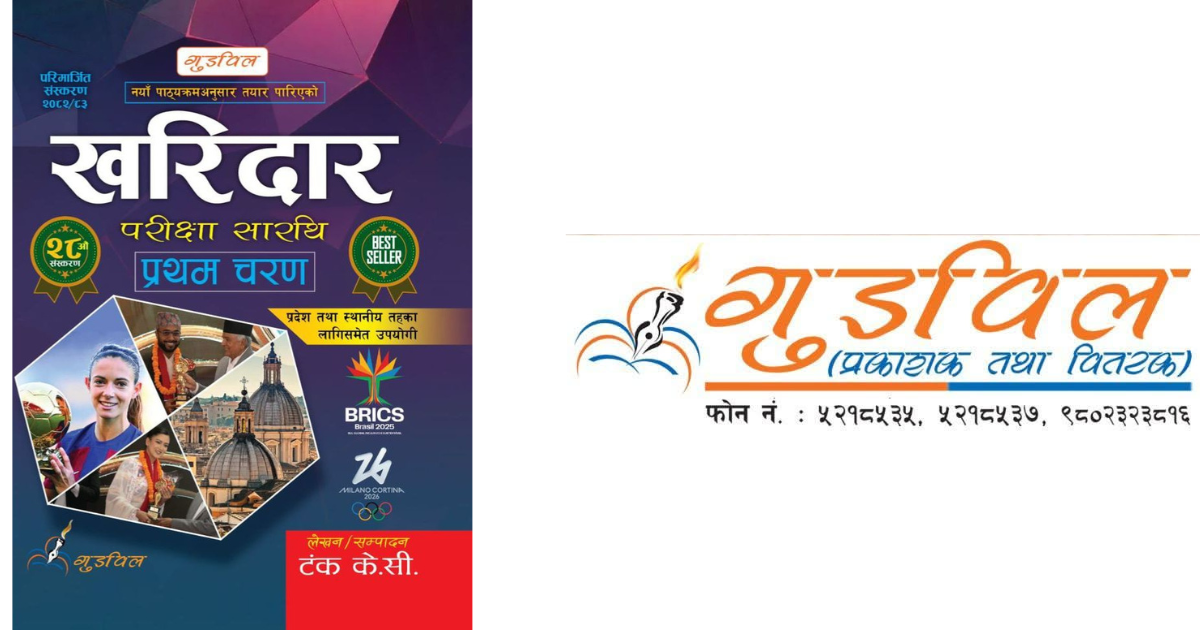
Kharidar First Paper Book by Tanka K.C. – Lok Sewa Exam Preparation Guide
Prepare for Nepal’s Lok Sewa Aayog Kharidar First Paper exam with Tanka K.C.’s comprehensive guide. 1008 pages of updated content, expert insights, and exam-focused material.
"Kharidar Parixa Sarathi" is a comprehensive exam companion designed to guide students and competitive exam aspirants throughout their preparation journey. The title itself—implying a charioteer for examinations—captures the book's mission: to steer readers confidently through the maze of exam strategies and challenges.
Key Features
• Extensive Content Coverage: Spanning over 1008 pages, this book delves into various subjects pertinent to the Kharidar First Paper exam.bizbazar.com.np+1
• Structured Layout: Organized into thematic sections, facilitating focused study sessions.
• Updated Edition: The 2080 edition incorporates the latest syllabus and exam patterns, reflecting the current trends in the examination.
• Expert Authorship: Authored by Tanka K.C., a renowned figure in Nepal's educational landscape, known for his insightful and effective teaching
Why Choose This Book?
• Comprehensive Coverage: Addresses all essential topics required for the Kharidar First Paper exam, ensuring no subject is overlooked.
• Exam-Oriented Approach: Tailored to meet the specific requirements of the Lok Sewa Aayog examination, enhancing your chances of success.
• Trusted Resource: Widely recognized and recommended by educators and previous exam toppers for its effectiveness in exam preparation.
Enhance Your Exam Readiness
Equip yourself with the Kharidar First Paper Book by Tanka K.C. and embark on a structured and effective preparation journey. This book serves as a valuable companion, guiding you through the complexities of the exam and boosting your confidence.
At its core, the guide lays out a structured roadmap for tackling competitive exams. It breaks down the exam formats, details various types of questions, and explains the rationale behind successful answering techniques. This clear, step-by-step approach helps learners not just to memorize facts, but to understand and apply key principles under exam conditions.
The book is written in an accessible, student-friendly language that demystifies complex subjects and offers practical advice, ranging from time management and efficient study scheduling to stress-relief strategies and self-assessment techniques. By incorporating both motivational insights and tactical study tips, it aims to build not only academic proficiency but also the confidence required to excel under pressure.
Furthermore, "Kharidar Parixa Sarathi" is tailored to resonate with the local academic context while incorporating universal best practices. Its clear organization—from foundational concepts to advanced problem-solving strategies—ensures that readers can progressively build their knowledge and skills, making each study session a meaningful step toward long-term success.
In essence, the book serves as a trusted companion for students, equipping them with the tools necessary to navigate competitive examinations and develop essential life skills such as critical thinking and strategic planning.
Syllabus
Section (A) : General Knowledge
1.
Solar System and Geography (6 questions × 2 marks = 12 Marks)
1.1
General information on solar system and earth.
1.2
Geography of World - continent, ocean, pole, latitude, longitude, time,
distance, mountains, earthquake, volcano, rivers, glaciers, lakes, climate.
1.3 Geography of Nepal - geographical location, relief features and natural resources (water resources, animals, plants, soils, minerals, mountains).
2.
History (6 questions × 2
marks = 12 Marks)
2.1
History of the World - Industrial revolution, French revolution, American War
of independence, Russian revolution/October revolution, First and Second World
wars and Indian movement for independence: events, causes and effects.
2.2 History of Nepal (From
ancient period till now)
2.2.1
Social, economic and political conditions of Kiranti Period, Lichhavi Period
and Malla Period.
2.2.2 Modern history of Nepal (from Nepal’s unification to present day) notable political events, social, cultural and economic conditions.
3.
Social and economical aspect of Nepal and Polity (6 questions × 2 marks = 12 Marks)
3.1
Information on social aspect including traditions, norms, values, religions,
ethnicity, languages, cultures, arts, literature, music, cultural heritages
3.2
Economic Indicators (economic growth, GDP, per capita income, remittance,
foreign investment, foreign co-operation)
3.3
Economic status (agriculture, industry, trade, tourism, transportation,
communication, development planning) of Nepal.
3.4 Polity and governance of Nepal – constitution, federal system, political system.
4.
Science Technology, Public Health and Environment (6 questions×2 marks = 12 Marks)
4.1
Information on recent scientific activities and major inventions of science
which has direct impact on human life.
4.2
General Information on health, food and nutrition.
4.3
Information on ecology, bio-diversity, sustainable development, climate change,
environment management, pollution, population, urbanization, settlement
(migration)
5.
International Relations and Current Affairs (6 questions × 2 marks = 12 Marks)
5.1
International affairs and institutions – the UNO and regional organizations
(the SAARC, ASEAN, EU).
5.2 Information on current
affairs of national and international importance, and noted personalities and
thinkers.
Section (B) : Basic Office Skills
Test (BOST)
The Basic Office Skills Test
(BOST) includes the following tests:
1.
Verification test: This test will include questions that check or find
errors or similarities or differences on data, numbers or verbal information.
2.
Completion: This test will consist of questions on verbal or numerical
or non-verbal (pictorial) details to complete blank space, series, pattern or
matrix logically.
3.
Classification: This test will include questions on verbal or numerical
or non-verbal (pictorial) details to classify or differentiate logically.
4.
Analogy: This test will include questions on verbal or numerical or
non-verbal (pictorial) details to find out relations logically.
5.
Filing aptitude test: This test will include questions to solve the
verbal and numerical filing items or operation alphabetically, numerically or
chronologically.
6.
Follows instructions: This test will include questions that can be
solved by following the written instructions exactly.
7.
Numerical reasoning test: This test will include questions related to
fundamental arithmetic operations.
8.
Coding & Matching test: This test will include questions relating to
coding and matching of verbal or numerical details.
9.
Analytical reasoning test: This test will include verbal or numerical or
non-verbal (pictorial) types of analytical reasoning questions.
10. Direction and Distance
sense test: This test will include questions to find the direction and
distance.
Note:- The main purpose of the Basic
Office Skills Test (BOST) is to assess a candidate’s ability to perform
essential clerical tasks quickly and accurately, i.e. read quickly, check the
accuracy of verbal and numerical information, compare sets of information,
follow written instructions, understand and interpret written material and make
simple decisions.
It assesses a candidate’s
ability and reasoning to determine the appropriate arithmetic operation for
solving a problem. It also assesses a candidate’s visual speed and accuracy as
well as space relations aptitude.
The nature
and standard of questions in Basic Office Skills Test (BOST) will be such that
an educated Class X level person will be able to answer them without any
specialized study. Focus will be on testing a candidate’s ability to think
logically on the basis of a set of rules and analyze situations using common
sense. It will reflect the candidates' ability to analyse rather than the
ability to memorise.

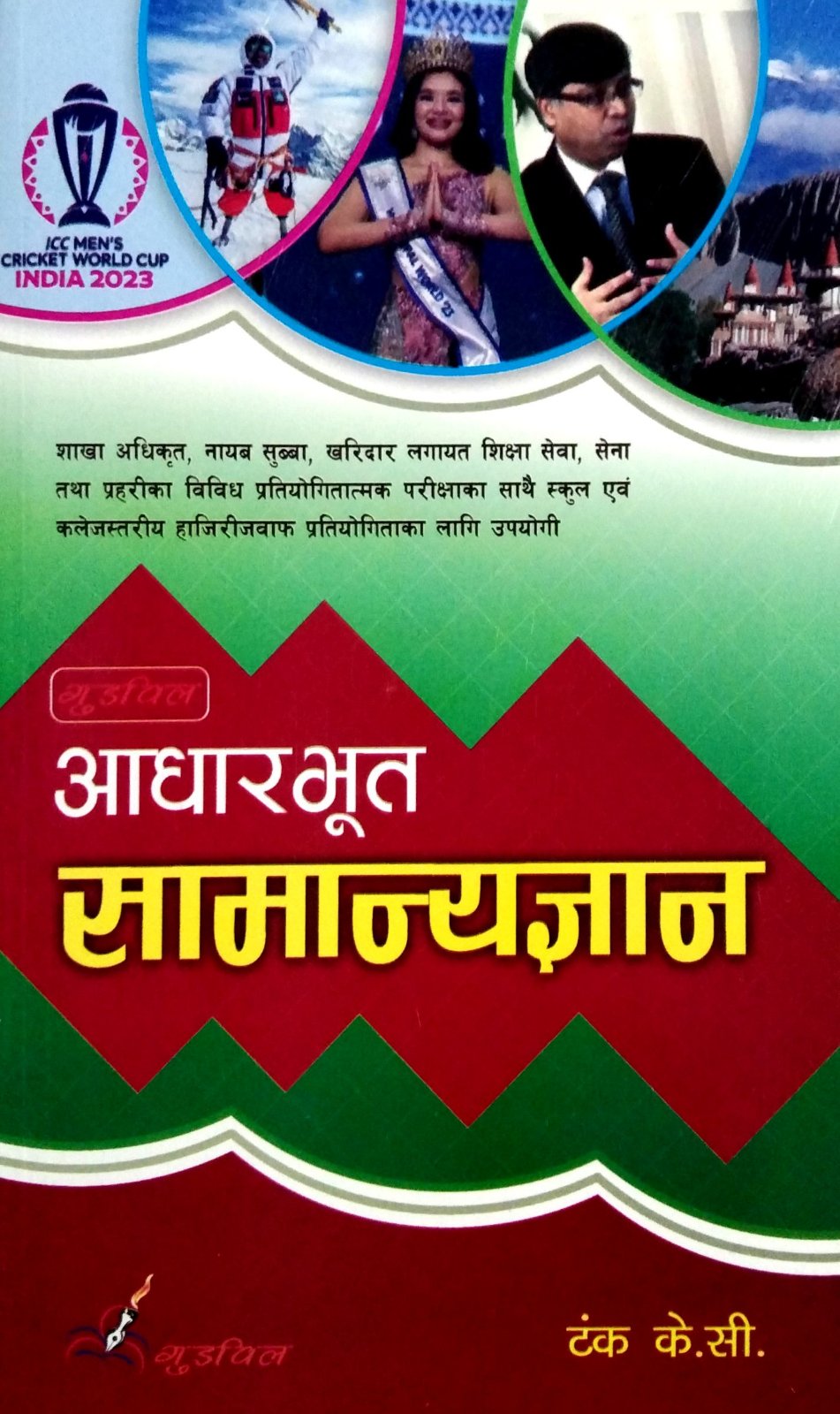
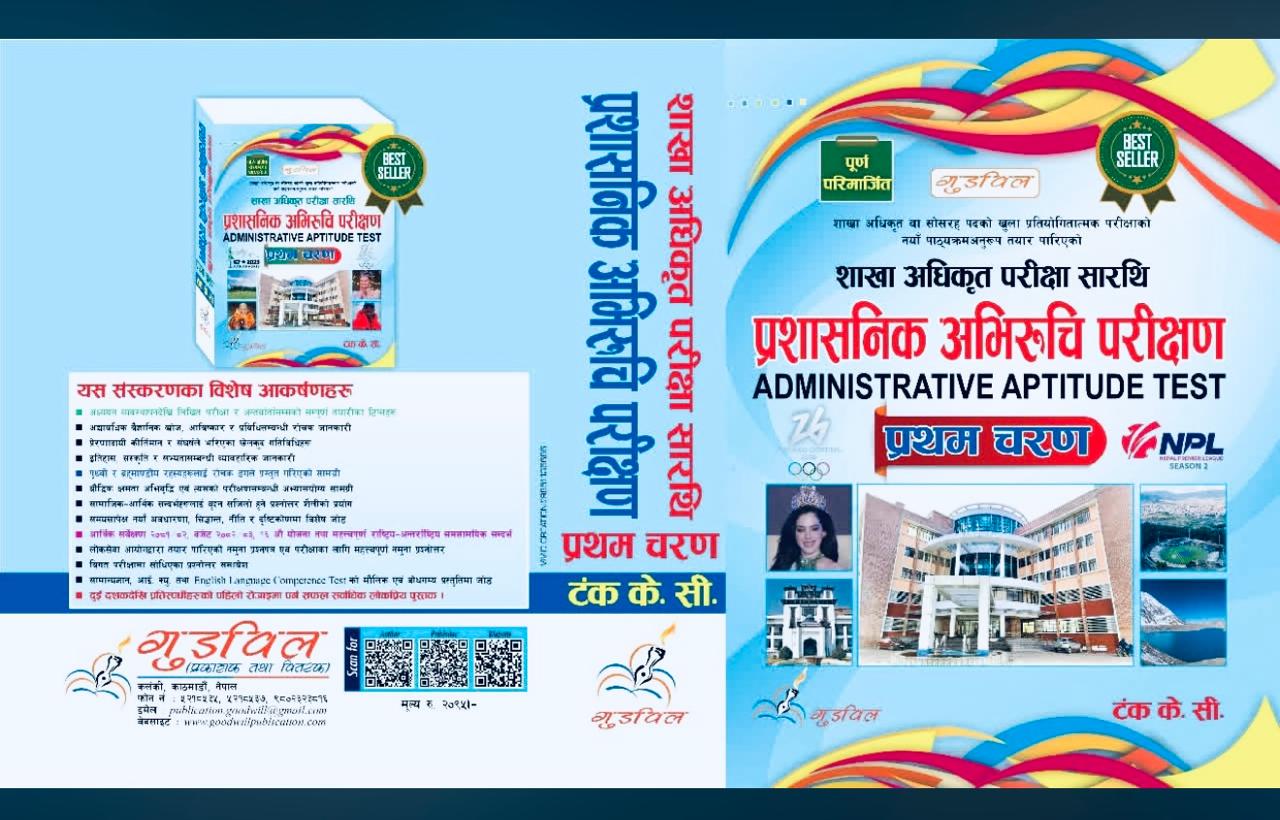
.png)
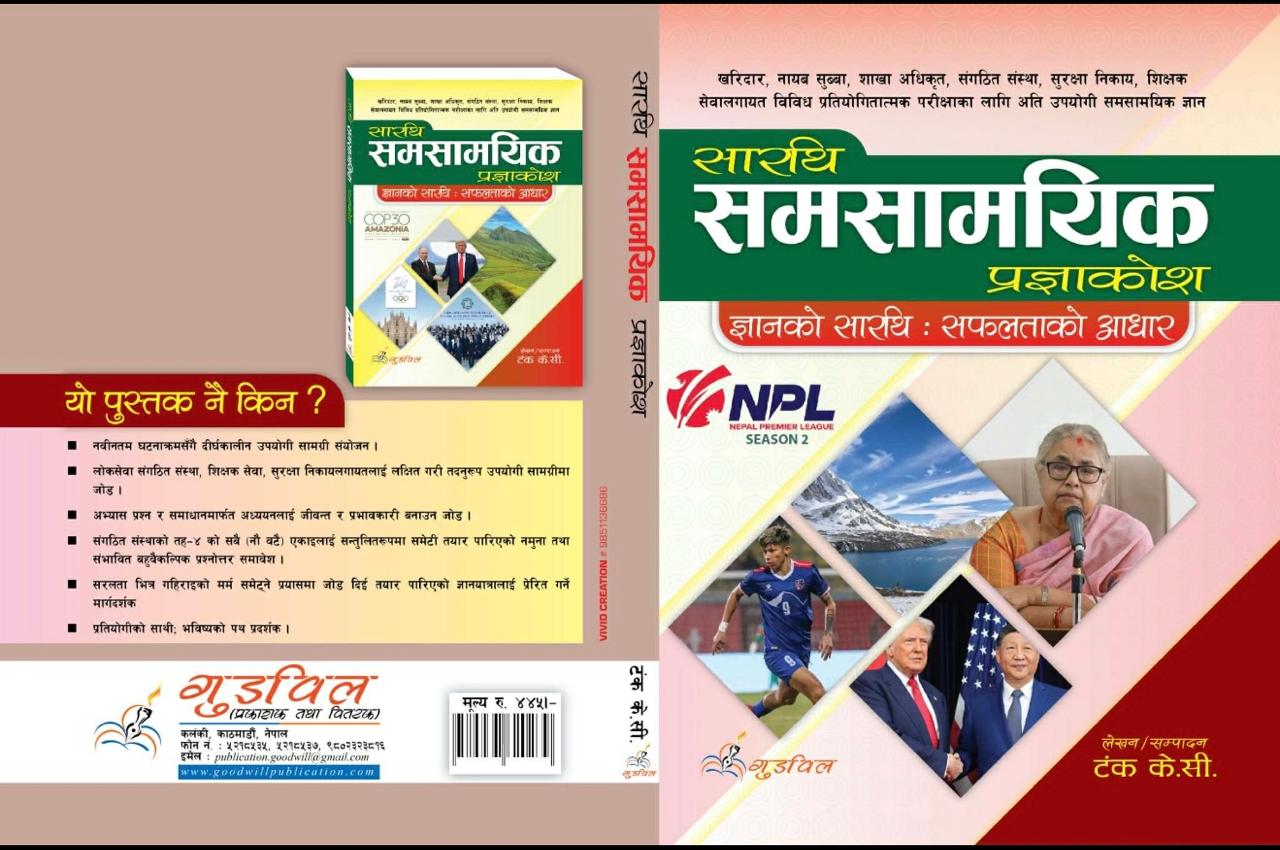
.png)
